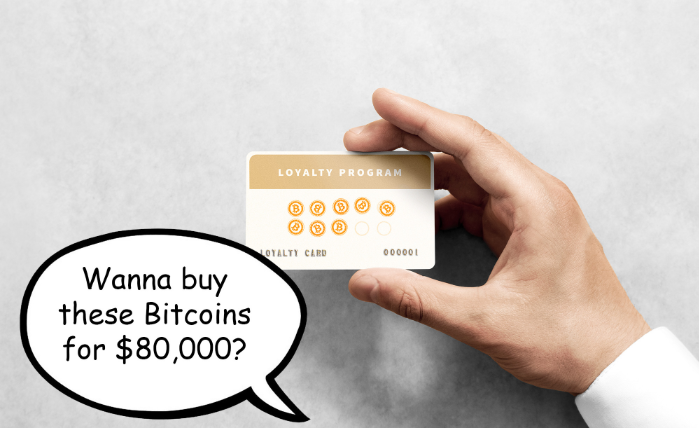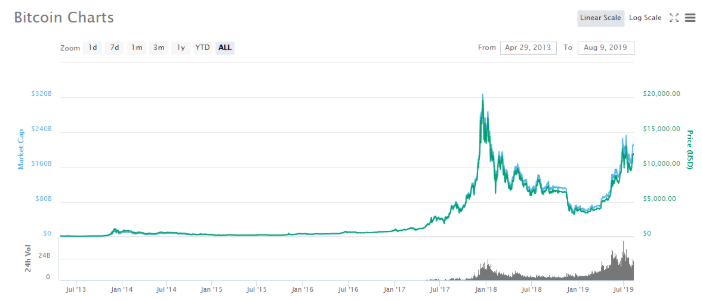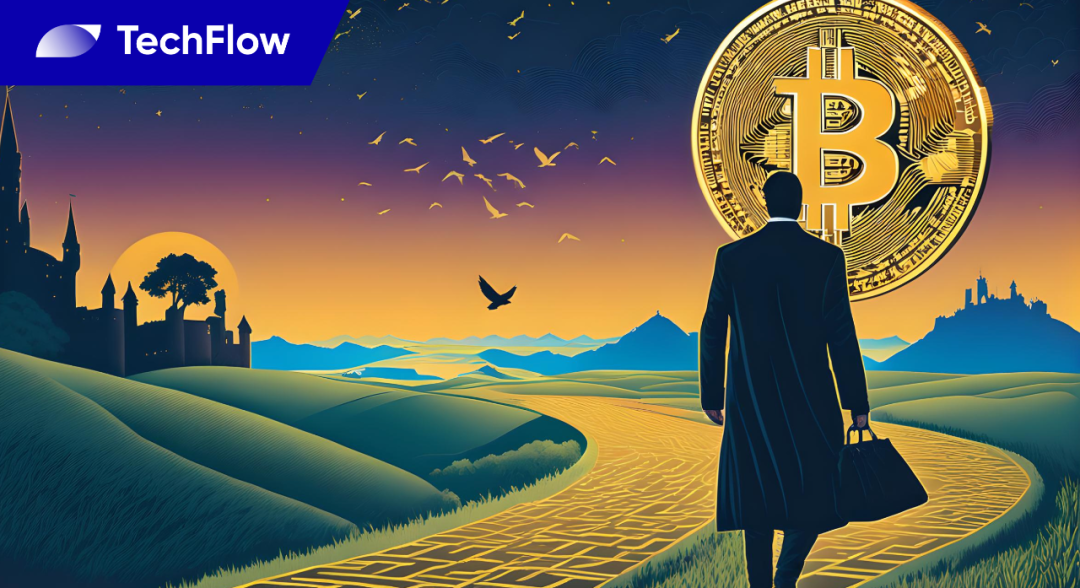Viewpoint | Reward points are meaningless compared to blockchain rewards
In today's era, without the support of blockchain technology, there is no point in creating a reward program.

Today, membership programs have become part of everyday life.
Most companies use them because they have fully researched validity. However, not all membership programs are equal. They have done well and they have done bad things.
- The financial structure of the Ethereum Ecology: How does it work?
- Popular Science | Long-distance attack problem of PoS protocol
- Former Federal Reserve official 怼 Bank of England Governor: The idea of cryptocurrency replacing the US dollar is unreasonable
To publish an effective reward program, consider the following three points: 1. Have an ideal return; 2. Save actual costs; 3. Have a deeply rooted experience.
I believe that the blockchain can help in these three areas. Therefore, I believe that in today's era, without the support of blockchain technology, there is no point in creating a reward program.
Why traditional reward points don’t make any sense
When you think about this problem seriously, you will find that most of the bonus points are only a small part of the discount.
As a participant, in order to get attractive discounts in front of you, your job is to accumulate a lot of points.
This means that these points have no real value in themselves, they are just a tool that merchants use to delay your reward.
This is why, for consumers, earning these points is just a mechanical habit.
Suppose you are a store, a consumer like me, and I hope that your clerk will not sell us membership cards.
However, because it is more convenient to open a membership card and then send it out to them, it is more convenient to open a membership card than to open a membership card.
In fact, bonus points are usually not exciting at all, fascinating or enjoyable.
Unless they are on the blockchain.
The value of personal sovereignty
The blockchain was invented to change the way we manage value in the digital arena.
As stated in the first line of the Bitcoin white paper:
(Bitcoin is an electronic cash system that is fully implemented through peer-to-peer technology, which enables online payments to be initiated directly by one party and paid to the other without the need to go through any financial institution.
——Zhong Bencong
The basic message here is that, in the existing digital framework of society, we do not really have the electronic money (and assets) allocated to us.
In fact, the financial institutions that manage our assets, the governments that regulate them, and the companies that influence them can take our assets at any time.
This has had a major impact in the era when sovereignty is so important to us and our society.
But more importantly, it succinctly states that digital assets become more valuable when digital assets cannot be taken away by anyone.
If you still want to argue, then the value of Bitcoin.
Bitcoin is valuable because it applies blockchain technology, and if it uses the current membership integration technology, it will be worthless.

On the other hand, at the time of this writing, Bitcoin has risen from $0.003 in 2010 to $10,109.72.

That's right, Bitcoin, worth $1 in 2010, is now worth $3.3 million.
This means that either the value of bitcoin has gone up, or the dollar has fallen, or both.
Most of us agree that the biggest advantage of Bitcoin compared to the US dollar is that even if the bank collapses, the economy collapses, or the hyperinflation, the assets are frozen, seized, or devalued, etc. Will not lose value.
Therefore, the reason for the rise in bitcoin prices is clear, namely the personal sovereignty provided by the Bitcoin blockchain.
Merchants can also provide the same benefits to customers.
If bonus points are based on blockchain, don't you think your customers will be more interested?
“Once you have our points, you will be permanently owned, no one can take it, and its value is evidence.”
Whatever you think, personal sovereignty is valuable. Foresighted businesses should try to find a way to achieve a win-win situation for themselves and their customers.
Valuable value
One of the most compelling advantages of blockchain technology is its ability to promote secure, reliable peer-to-peer transactions.
In fact, if no one wants to buy something, then this thing does not have economic value.

The purchase price of a commodity represents its economic value and there are no other metrics.
In fact, the price that the seller wants to sell is not the real value of the product, and the price that the buyer wants to buy is of course not.
The actual value is determined when the buyer and the seller negotiate through a deal.
This is why, if something cannot be bought or sold, then it has no economic value.
Intuitively, bonus points are valuable simply because you can trade them for discounts.
1000 reward points = $10 for the next burger
But when you only have 300 points and nothing can be changed, this point is equivalent to no value, so that everyone ignores it.
If you can exchange bonus points for other things, will the points become more valuable?
If 300 points can sell for $3, or redeem for a free ride to the store?
Then you can trade with friends who like to eat burgers. You sell the reward points to her. You can get $3 or a free ride. She can use this point to buy her favorite burger, while the burger shop Harvest a customer.
As a result, a simple Hamburger membership program suddenly became enriched and became a permanent recommendation program.
Through the blockchain, merchants can use reward points to make shoppers more generous or entrepreneurial.
They can make such an advertisement:
Our bonus points can save money or trade with your friends.
I bet that there is no use value compared to the fact that their assets are tied up, and everyone will prefer tradable assets.
Interoperability value
The blockchain is designed to break the walled garden pattern.
This means that blockchain assets continue to be controlled by independent decentralized computer networks while they need to be integrated into our web pages, applications and games.
This creates a perfect environment for cross-platform interoperability, because once you've overcome the difficulty of integrating blockchain assets into web pages, applications, or games, it's not difficult to integrate them into other places.
This allows us as users to break the limits of the past into a single application ecosystem.
In effect, this makes the transition easier, that is, a single web page, program, and game is transformed into an integrated decentralized ecosystem, or a vertically integrated economic system.
If we want to, we can do more than just web pages, programs and games.
Blockchain assets can be easily integrated into any device, even cars, robots and artificial intelligence.
Let's take a simple example.
Imagine watching the Avengers 4: The Final Battle at the cinema. The vendor sent you a blockchain asset that unlocks content on multiple platforms and devices.
1. You play Fortress Night, Horde Conflict or My World on PC, MAC, IOS, ANDROID, XBOX or PLAYSTATION, then you can use your Avengers token to unlock a precious skin of the tyrant.
2. You open the Marvel website and you can use the exclusive tyrant avatar in the forum.
3. The tyrant will give your car a voice navigation and command you in a condescending manner.
This is not a scene of science fiction, and these are currently achievable.
This means that traders can buy and sell cryptocurrencies on exchanges, earn blockchain rewards, and then use blockchain rewards to navigate through multiple game worlds.
Don't you find it interesting?
More importantly, because these assets are on the blockchain, users can permanently own them, freely trade, and earn revenue.
——End——
What I want to say is…
If you create a membership plan that only offers discounts and create a blockchain membership plan that allows members to permanently own assets, trade freely, and use assets for various games, why do you choose to build a non- Blockchain membership program?
If you know, tell me.
The original source is hackernoon, the translation is provided by First.VIP, please reprint the information at the end of the article.
Source: first class warehouse
We will continue to update Blocking; if you have any questions or suggestions, please contact us!
Was this article helpful?
93 out of 132 found this helpful
Related articles
- Analysis: What opportunities, challenges and risks will be brought by blockchain technology for digitalization of securities?
- Stable currency analysis: Most stable coins will not be used for large transactions except USDT
- Exchange Real Volume Report (on) | TokenInsight
- Gartner reports: Blockchain business is facing a test, the industry is still dark
- Bakkt also can't impact traditional cryptocurrency futures trading? – Coin, OKex, Matcha, and the same station
- Market Analysis: Bitcoin rebounds infinitely, still a short world
- Let’s listen to Jiang Zhuoer and Lu Haiyi’s understanding of the relationship between bitcoin price and computing power, as well as the price trend of this round.





